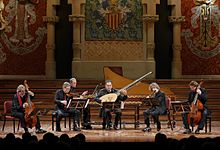
A nation-state is a political unit where the state and nation are congruent. It is a more precise concept than "country", since a country does not need to have a predominant ethnic group.
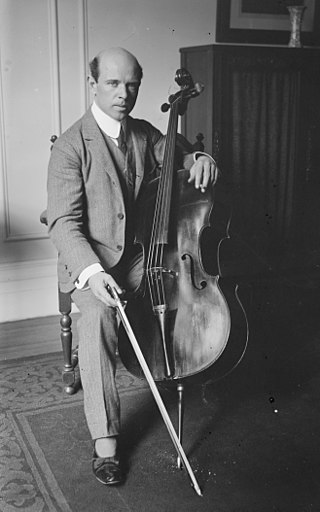
Pau Casals i Defilló, known in English by his Castilian Spanish name Pablo Casals, was a Catalan and Puerto Rican cellist, composer, and conductor. He made many recordings throughout his career of solo, chamber, and orchestral music, including some as conductor, but he is perhaps best remembered for the recordings he made of the Cello Suites by Bach. He was awarded the Presidential Medal of Freedom in 1963 by President John F. Kennedy.

Palau de la Música Catalana is a concert hall in Barcelona, Catalonia, Spain. Designed in the Catalan modernista style by the architect Lluís Domènech i Montaner, it was built between 1905 and 1908 for Orfeó Català, a choral society founded in 1891 that was a leading force in the Catalan cultural movement that came to be known as the Renaixença. It was inaugurated on 9 February 1908.

Josep Maria Carreras Coll, better known as José Carreras, is a Spanish operatic tenor who is particularly known for his performances in the operas of Donizetti, Verdi and Puccini.

The Catalan Countries are those territories where the Catalan language is spoken. They include the Spanish regions of Catalonia, the Balearic Islands, Valencian Community, and parts of Aragon and Murcia (Carche), as well as the Principality of Andorra, the department of Pyrénées-Orientales in France, and the city of Alghero in Sardinia (Italy). It is often used as a sociololinguistic term to describe the cultural-linguistic area where Catalan is spoken. In the context of Catalan nationalism, the term is sometimes used in a more restricted way to refer to just Catalonia, Valencia and the Balearic Islands. The Catalan Countries do not correspond to any present or past political or administrative unit, though most of the area belonged to the Crown of Aragon in the Middle Ages. Parts of Valencia (Spanish) and Catalonia (Occitan) are not Catalan-speaking.

The music of Catalonia comprises one of the oldest documented musical traditions in Europe. In tandem with the rest of Western Europe, it has a long musical tradition, incorporating a number of different styles and genres over the past two thousand years.

Henri Constant Gabriel Pierné was a French composer, conductor, pianist and organist.

Jordi Savall i Bernadet is a Spanish conductor, composer and viol player. He has been one of the major figures in the field of Western early music since the 1970s, largely responsible for popularizing the viol family of instruments in contemporary performance and recording. As a historian of early music his repertoire features everything from medieval, Renaissance and Baroque through to the Classical and Romantic periods. He has incorporated non-western musical traditions in his work; including African vernacular music for a documentary on slavery.

Occitania is the historical region in Western and Southern Europe where the Occitan language was historically spoken and where it is occasionally used as a second language. This cultural area roughly encompasses much of the southern third of France as well as part of Spain, Monaco, and parts of Italy.

The Orchestre national de France is a French symphony orchestra based in Paris, founded in 1934. Placed under the administration of the French national radio, the ONF performs mainly in the Théâtre des Champs-Élysées from where all its concerts are broadcast. Some concerts are also held in the Salle Olivier Messiaen in the Maison de Radio France.
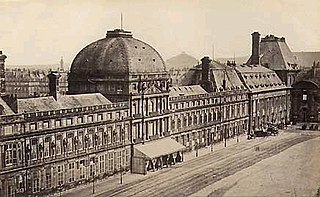
The Concert Spirituel was one of the first public concert series in existence. The concerts began in Paris in 1725 and ended in 1790. Later, concerts or series of concerts with the same name occurred in multiple places including Paris, Vienna, London and more. The series was founded to provide entertainment during the Easter fortnight and on religious holidays when the other spectacles were closed. The programs featured a mixture of sacred choral works and virtuosic instrumental pieces, and for many years took place in a magnificently-decorated Salle des Cent Suisses in the Tuileries Palace. They started at six o’clock in the evening and were primarily attended by well-to-do bourgeois, the lower aristocracy, and foreign visitors. In 1784 the concerts were moved to the stage area of the Salle des Machines, and in 1790, when the royal family was confined in the Tuileries, they took place in a Paris theater.

La Capella Reial de Catalunya is a group of soloist singers with the aim of making the repertoire of Catalan historical music and, by extension, that of Spanish and other music widely known throughout the world. The group was formed in Barcelona in 1987 by its conductor Jordi Savall. La Capella Reial de Catalunya often performs with Le Concert des Nations, a period instrument group also founded and conducted by Savall.
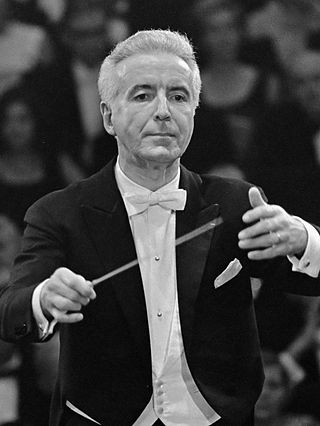
Jean Fournet was a French flautist and conductor.
The Barcelona Symphony Orchestra and National Orchestra of Catalonia is a symphony orchestra based in Barcelona, Spain. Since April 1999, the Orchestra has had its headquarters at L'Auditori. Prior to that, from its foundation to 1998, the orchestra was resident at the Palau de la Música Catalana.
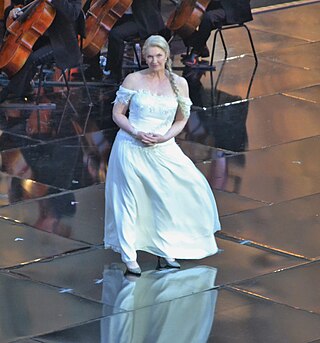
Annick Massis is a French operatic soprano. She sang a wide variety of roles, but is best known for her interpretation of works in the 19th-century Italian and French repertoire.

Pyrénées-Orientales, also known as Northern Catalonia, is a department of the region of Occitania, Southern France, adjacent to the northern Spanish frontier and the Mediterranean Sea. It also surrounds the tiny Spanish exclave of Llívia, and thus has two distinct borders with Spain. In 2019, it had a population of 479,979. Some parts of the Pyrénées-Orientales are part of the Iberian Peninsula. It is named after the Pyrenees mountain range.
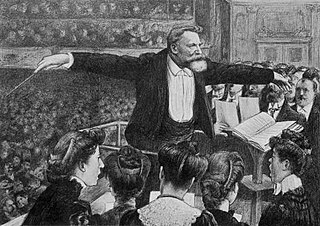
The Colonne Orchestra is a French symphony orchestra, founded in 1873 by the violinist and conductor Édouard Colonne.
Antoine Marguier was born in 1969 in Switzerland, he is an orchestra conductor and pedagogue.

Claudi Arimany i Barceló is an international flautist, considered the direct heir, both in interpretative style and in musical concept, of Jean-Pierre Rampal, his mentor and colleague in many concerts. Since the 1980s he has performed with leading international orchestras as a guest soloist, as well as teaching and working to study and revive pieces for flute.

Occitania is the southernmost administrative region of metropolitan France excluding Corsica, created on 1 January 2016 from the former regions of Languedoc-Roussillon and Midi-Pyrénées. The Council of State approved Occitania as the new name of the region on 28 September 2016, coming into effect on 30 September 2016.
